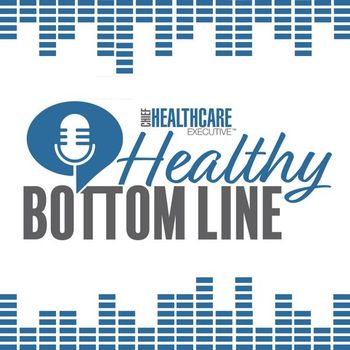
The company’s founder talks with Chief Healthcare Executive® about weight loss drugs, the rise in in-person appointments, what customers are seeking and more.

The company’s founder talks with Chief Healthcare Executive® about weight loss drugs, the rise in in-person appointments, what customers are seeking and more.

After examining more than 800 hospitals, U.S. News & World Report unveils its 2025 list of the top hospitals for maternity care. Jennifer Winston of U.S. News talks about the rankings.

Gary Jessee, who has spent many years working with Medicaid, talks about the implications of new federal regulations in the latest podcast from Chief Healthcare Executive®.

More than half of all reviews are negative, according to a new study from the University of Pennsylvania. Hospital ratings tumbled in the pandemic and haven’t fully recovered.

Patients are routinely stuck in emergency departments for days, or longer, which is hurting patients and staff. A recent study also says it’s adding costs to hospitals.

The group released its Fall 2024 hospital safety grades and finds encouraging progress after problems during the pandemic. Katie Stewart of The Leapfrog Group talks about the improvements and building on those gains.

Dr. Myechia Minter-Jordan, the new leader of the AARP, talks with Chief Healthcare Executive about her goals and why it's such a pivotal moment for the organization.

The website named top performers in a host of specialties. Brad Bowman of Healthgrades talks about the awards and the continued shift toward outpatient care.

Continuous glucose monitors can empower people with diabetes to make more informed decisions, if patients use them regularly.

Dr. Bishow Shrestha of WellSpan Health talks about using the devices to help change behavior and avoid complications. He says patients feel more connected.

The singer recently discussed dealing with the disease, a twist in his diagnosis, and using continuous glucose monitors.

Brad Kittredge, co-founder of the telehealth company, talks about reaching more people in underserved communities and at risk of suicidal ideation.

A new study outlines a dramatic increase in patients opting for GLP-1 drugs, and a drop in those opting for surgery to deal with obesity.

Thousands of people traveled to Las Vegas for the annual event. There’s growing enthusiasm for AI, and a little fatigue over some of the hype.

Children and teens are struggling with behavioral health issues. Experts discuss the difficulties kids are facing and how young people can be helped.

The big health technology conference kicks off in Las Vegas Sunday, and leaders shared their thoughts on big topics likely to dominate, including AI, cybersecurity and improving the patient experience.

A new FDA rule requires patients getting mammograms to be told if they have dense breasts. Arif Kamal of the American Cancer Society says providers should engage patients to talk about more screenings.

Bipartisan measures in the Senate and House would make it easier for more women to get tested.

Health systems are seeing shortages because flooding from Helene has closed a key plant in North Carolina. The American Hospital Association wants help from the White House.

It’s the first time that the evaluation of pediatric facilities includes behavioral health. Ben Harder of U.S. News talks about adding another specialty to the analysis.

The media outlet examined 108 pediatric hospitals and selected top performers in a host of categories.

Researchers found patients had better outcomes and lower costs by obtaining the devices through a medical benefit over a pharmacy. Arti Masturzo, chief medical officer at CCS, talks about the study and implications for patients.

The devices are more widely available, and motivated patients can use them as tools to improve their health, says Dr. Robert McCauley of Lehigh Valley Health Network.

There are troubling disparities for Black men with prostate cancer. Dr. William Dahut of the American Cancer Society talks about having more, and earlier, conversations about screenings.

Physicians say consolidations are contributing to burnout. Gary Price of The Physicians Foundation tells Chief Healthcare Executive doctors are being pressed to take more patients and are losing autonomy.